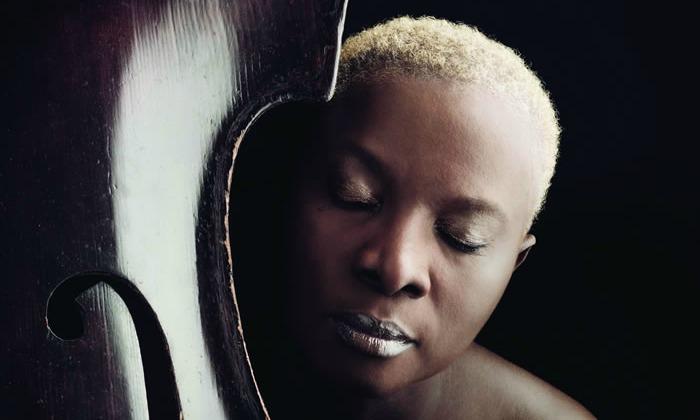Angelique Kidjo: Traditional Music Is Always Evolving
Over the past three decades, Angelique Kidjo‘s voice has pretty much defined African music. She grew up in Benin, and although she left there in the early 1980s, she still sings in the languages of her youth. Unless you’re from West Africa, you probably can’t understand Kidjo’s lyrics — but anyone can feel the sense of joy and yearning in her music. Earlier this year, Kidjo won her second Grammy, for her album Eve, which was dedicated to the women of Africa, to which she returns regularly as a UNICEF ambassador. On her latest album, Sings, she performs with the Luxembourg Philharmonic Orchestra, and critics are calling it her best yet.
She tells Kurt Andersen that music was part of the fabric of her upbringing in Benin, because her mother, father, and brother all played instruments. “I sang before I spoke, that’s how my father used to put it,” she says. But it was hearing Miriam Makeba at age eight that proved to her an African musician could have an international career. “I said, ‘If she can do it, so can I,'” Kidjo recalls.
She left the country when she was in her early 20s in response to the Communist government’s repression of artists. “It was compulsory for Beninese artists to write music about the greatness of the government and the greatness of communism,” she says. “I’m like, ‘Hell no.'” Kidjo moved to Paris, where she first contemplated studying human rights law before settling on a career in music. “I decided that singing will allow me to speak about a broader range of issues and allow me to be a voice of the voiceless people in the world,” she says.
Lately, Kidjo has expanded her artistic range by collaborating with the Luxembourg Philharmonic Orchestra and the composer Philip Glass. Glass wrote a piece for Kidjo called Ife: Three Yoruba Songs, which Kidjo describes as “the most challenging piece of music I ever sang in my career.” The pair found the experience so rewarding that Glass now plans to write a fourth song for Kidjo to complete the cycle. Working with Glass “really challenged my voice,” Kidjo says. “I realized that my voice can do so much. I didn’t know it before.”
